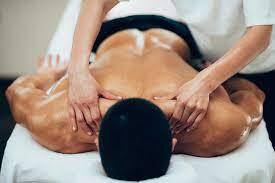How Can Massage Therapy Help Enhancing Athletic Performance and Recovery
Massage therapy and sports physiotherapy have long been recognized for their therapeutic benefits and their ability to promote relaxation, relieve muscle tension, and aid in the recovery process. Athletes of all levels can benefit from incorporating these modalities into their training regimen. In this article, we will explore how massage therapy and sport physiotherapy calgary can help enhance athletic performance and expedite the recovery process.
Increased Circulation and Oxygenation
One of the primary benefits of massage therapy and sports physiotherapy for athletes is the increase in blood circulation throughout the body. The skilled manipulation of the soft tissues during a massage and the targeted exercises and techniques used in sports physiotherapy help to dilate blood vessels, allowing for improved blood flow. This increased circulation ensures that oxygen and nutrients are delivered more efficiently to the muscles, aiding in their performance and recovery.
Relief from Muscle Tension and Soreness
Intense physical activity often leads to the buildup of muscle tension and soreness. Massage therapy and sports physiotherapy in Calgary are particularly effective in addressing these issues. The pressure applied during a massage helps to release muscle tension, reducing stiffness and improving flexibility. In sports physiotherapy, specialized techniques such as therapeutic exercises, stretching, and manual therapy help alleviate muscle tension and promote healing.
Improved Range of Motion and Flexibility
Athletes require a wide range of motion and flexibility to perform at their best. Regular massage therapy sessions and sports physiotherapy in Calgary can help improve both of these factors. Massage techniques such as stretching and deep tissue manipulation help to increase joint flexibility and loosen tight muscles. Sports physiotherapy utilizes targeted exercises and stretching routines to enhance range of motion and promote flexibility, addressing specific areas of concern for each athlete.
Injury Prevention
Massage therapy and sports physiotherapy play a significant role in injury prevention for athletes. By promoting increased blood flow, flexibility, and strength, these modalities help to reduce the risk of muscle strains, sprains, and other soft tissue injuries. Additionally, regular sessions allow therapists and physiotherapists to identify areas of potential concern, such as imbalances or weaknesses, and address them through targeted treatments and exercises.
Faster Recovery and Reduced Delayed-Onset Muscle Soreness
After intense physical exertion, the body goes through a recovery process to repair damaged tissues and adapt to the demands placed on it. Massage therapy and sports physiotherapy can accelerate this recovery process by increasing circulation and oxygenation, as mentioned earlier. Furthermore, they can help alleviate delayed-onset muscle soreness (DOMS), which often occurs 24 to 72 hours after strenuous exercise. These modalities aid in the removal of waste products, stimulate the production of endorphins, and promote tissue healing and repair.
Stress Reduction and Mental Well-being
Athletic performance is not solely reliant on physical factors but also on mental well-being. The demands of training and competition can place significant stress on athletes, which can impact their performance. Massage therapy and sports physiotherapy in Calgary offer valuable opportunities for relaxation, stress reduction, and mental well-being. The soothing touch, calming environment, and personalized care provided by therapists and physiotherapists can help athletes unwind, relieve anxiety, and improve their overall mental well-being.
Conclusion
Massage therapy and sports physiotherapy for athletes are powerful tools for athletes looking to enhance their performance and expedite their recovery. From increased circulation and oxygenation to relieving muscle tension and promoting flexibility, the benefits of these modalities are far-reaching. Moreover, they contribute to injury prevention, faster recovery, reduced DOMS, stress reduction, and improved mental well-being.
